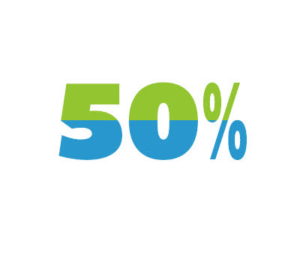Despite the pandemic, there has been a lot of positive cannabis news in the last couple of weeks.
From research advancements to increases in industry employment numbers to an infusion of millions of dollars of tax money to the State of Colorado, the cannabis industry has a lot to be proud of.
By the numbers:

The cannabis industry’s
projected economic impact
by 2024.
 Projections show cannabis employment growth could increase 50% in 2020. That would be more than the number of the nation’s computer programmers. Chart: US cannabis employment could climb nearly 50% in 2020, surpassing computer programmers
Projections show cannabis employment growth could increase 50% in 2020. That would be more than the number of the nation’s computer programmers. Chart: US cannabis employment could climb nearly 50% in 2020, surpassing computer programmers
 The year marijuana was hailed as a miraculous treatment for “general debility” and “nervous excitement.” Since then, there hasn’t been much scientific research on cannabis, but Colorado is one of the states trying to lead the way with controlled, peer-reviewed studies.
The year marijuana was hailed as a miraculous treatment for “general debility” and “nervous excitement.” Since then, there hasn’t been much scientific research on cannabis, but Colorado is one of the states trying to lead the way with controlled, peer-reviewed studies.
 Put a $ in front of it and it’s $167 million. That’s the tax revenue generated by the Colorado cannabis industry from January through June of 2020. Since legalization, the state has received nearly $1.4 billion in cannabis taxes and fees.
Put a $ in front of it and it’s $167 million. That’s the tax revenue generated by the Colorado cannabis industry from January through June of 2020. Since legalization, the state has received nearly $1.4 billion in cannabis taxes and fees.
Here’s how Denver spends it’s
tax revenue.
 Here are the 35 most influential womenin cannabis, according to Green Entrepreneur. Notables include soccer star Megan Rapinoe, and in Colorado, CEO of Simply Pure Dispensary, Wanda James, Shannon Donnelly, CEO of Healthy Honeys, and Nancy Whiteman, CEO of Wana Brands.
Here are the 35 most influential womenin cannabis, according to Green Entrepreneur. Notables include soccer star Megan Rapinoe, and in Colorado, CEO of Simply Pure Dispensary, Wanda James, Shannon Donnelly, CEO of Healthy Honeys, and Nancy Whiteman, CEO of Wana Brands.
 That is how much of an increase in the rates of crime in states bordering Colorado and Washington, according to a study published in the Journal of Drug Issues. In fact, researchers found “a substantial reduction in certain types of crimes, such as property crime, larceny, and simple assault in border counties in the Colorado region.”
That is how much of an increase in the rates of crime in states bordering Colorado and Washington, according to a study published in the Journal of Drug Issues. In fact, researchers found “a substantial reduction in certain types of crimes, such as property crime, larceny, and simple assault in border counties in the Colorado region.”









 Projections show cannabis employment growth could increase 50% in 2020. That would be more than the number of the nation’s computer programmers.
Projections show cannabis employment growth could increase 50% in 2020. That would be more than the number of the nation’s computer programmers.  The year marijuana was hailed as a miraculous treatment for “general debility” and “nervous excitement.” Since then, there hasn’t been much scientific research on cannabis, but Colorado is one of the states trying to
The year marijuana was hailed as a miraculous treatment for “general debility” and “nervous excitement.” Since then, there hasn’t been much scientific research on cannabis, but Colorado is one of the states trying to  Put a $ in front of it and it’s $167 million. That’s the tax revenue generated by the Colorado cannabis industry from January through June of 2020. Since legalization, the state has received nearly $1.4 billion in cannabis taxes and fees.
Put a $ in front of it and it’s $167 million. That’s the tax revenue generated by the Colorado cannabis industry from January through June of 2020. Since legalization, the state has received nearly $1.4 billion in cannabis taxes and fees. Here are the 35
Here are the 35  That is how much of an increase in the rates of crime in states bordering Colorado and Washington, according to
That is how much of an increase in the rates of crime in states bordering Colorado and Washington, according to 


 Expansion of legal cannabis markets in the U.S. has fundamentally disrupted demand for illegal cannabis imports. Overall, the amount of cannabis intercepted along all U.S. borders fell 89% from 2011 to 2019. Along the southwestern border, where 99% of all intercepted cannabis has been collected, those incidents have decreased by 90% since 2011 Why?
Expansion of legal cannabis markets in the U.S. has fundamentally disrupted demand for illegal cannabis imports. Overall, the amount of cannabis intercepted along all U.S. borders fell 89% from 2011 to 2019. Along the southwestern border, where 99% of all intercepted cannabis has been collected, those incidents have decreased by 90% since 2011 Why? Why, yes. Republican state lawmakers, a former federal prosecutor, Koch Industries, NBA champion Kevin Garnett and criminal justice reform advocates delivered a letter to President Trump, imploring him to grant pardons or commutations to people serving time in federal prison for non-violent marijuana offenses.
Why, yes. Republican state lawmakers, a former federal prosecutor, Koch Industries, NBA champion Kevin Garnett and criminal justice reform advocates delivered a letter to President Trump, imploring him to grant pardons or commutations to people serving time in federal prison for non-violent marijuana offenses.
 Already in 2020, the cannabis industry has been the subject of several high-profile incidents:
Already in 2020, the cannabis industry has been the subject of several high-profile incidents: The head of the labor union that represents U.S. Border Patrol agents has acknowledged (albeit inadvertently) that states that legalize marijuana are disrupting cartel activity. The National Border Patrol Council President Brandon Judd said that cartels are transitioning to other drugs in states where cannabis is legal.
The head of the labor union that represents U.S. Border Patrol agents has acknowledged (albeit inadvertently) that states that legalize marijuana are disrupting cartel activity. The National Border Patrol Council President Brandon Judd said that cartels are transitioning to other drugs in states where cannabis is legal.
 CDC: Teen cannabis use dropped in Colorado and other states after legalization
CDC: Teen cannabis use dropped in Colorado and other states after legalization Washington State University: Legal cannabis has not led to spikes in crime in WA and CO
Washington State University: Legal cannabis has not led to spikes in crime in WA and CO